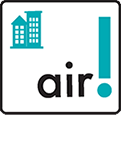If secondhand smoke is drifting into your apartment, your health may be at risk. Think about whether you would like to move to a smoking-restricted building or try to work with the smoking neighbors and your landlord to implement smoking restrictions in your building or your section of the building.
Document the problem as closely as you can. Here are some suggestions on how to do this effectively:
- Write down from where and when smoke is coming into your apartment.
- Put all of your requests to your landlord in writing, and keep copies of everything.
- Please see our Sample Landlord Letter .
- Use our Secondhand Smoke Communication Record to keep track of all correspondence with your landlord, the smoking neighbors, and any other agencies you talk to.
 Make an appointment with your doctor to have your health evaluated.
Make an appointment with your doctor to have your health evaluated.
Note that the only way to avoid the health hazards of secondhand smoke is by living in a completely smoke-free building.
In most types of housing, the federal Fair Housing Act prohibits discrimination against people with disabilities, which is defined as having a physical or mental impairment that substantially limits one or more of a person’s major life activities; having a record of such an impairment; or being regarded as having such an impairment.
Breathing is a major life activity. If you have special sensitivities to smoke, severe allergies, respiratory ailments or chronic heart disease, you may have a qualifying disability. If you do have a disability, you may be able to ask for “reasonable accommodations” to allow you to use your housing like everyone else. An example of a reasonable accommodation is the installation of a ramp for a person in a wheelchair.
If you have a disability that is affected by secondhand smoke, and secondhand smoke is preventing you from having equal access to your housing, you might be able to request a reasonable accommodation, such as smoking restrictions for your building, being moved to a smoking-restricted building, a separate ventilation system or sealing off your apartment.
Please see the section on the federal Fair Housing Act for more information on requesting reasonable accommodations.
If you are being evicted from your apartment in retaliation for making a complaint, you have rights and your landlord must follow proper legal procedures for evicting you from your apartment.
- Make sure that you keep a written record of all your communications with your landlord.
- If the landlord tries to evict you for making a complaint, you may be able to show that there has been an illegal retaliatory eviction, not a “no cause” eviction.
Retaliatory evictions occur when a landlord attempts to evict a tenant in response to some action taken by the tenant. There are four kinds of retaliatory evictions:
- Eviction action or the threat of eviction
- A non-renewal of the lease
- Increasing your rent
- Decreasing your services
Further information can be found by consulting http://www.oag.state.md.us/Consumer/landlords.htm
